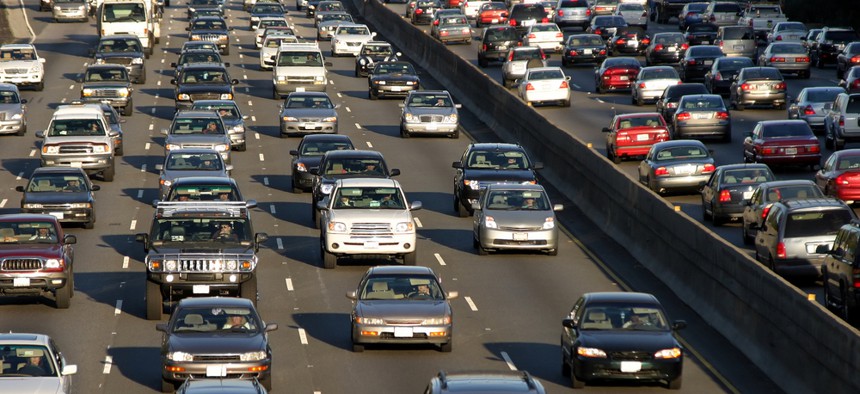
egd/Shutterstock.com
Grumpy and Frustrated? You Should Shave Some Time From Your Daily Commute
You can blame traffic for your lousy mood.
Spending half your waking hours away from work in traffic during your commute is clearly a huge downer. But those bummed out feelings can spread into your larger outlook on life, according to new research.
The findings are from a new report from Canada’s University of Waterloo, published in the World Leisure Journal (pdf), which analyzed the time diaries of 3400 Canadian driving commuters who had participated in the 2010 Canadian General Social Survey, and found that people who have a long round trip commute—an hour and a half to two hours—reported lower levels of satisfaction with life, and increased feelings of time pressure, says co-author Margo Hilbrecht, the associate director of research for Canadian Index of Wellbeing.
Those feelings are exacerbated by driving in heavy traffic. In rural areas, for instance, people with longer drives actually enjoy themselves. Driving at the speed you want, unimpeded by traffic jams and surprise sig alerts, can actually be very pleasant; Drivers have time to listen to music, or to think uninterrupted, Hilbrecht tells Quartz. By contrast, thepressure and feelings of dissatisfaction rise with longer drives for urban dwellers who is rushing to get kids to school and make the 9 am meeting.
But we can’t all scrap the city life and move to the farm. Instead, Hilbrecht suggests: “Try to work physically active leisure into your day.” People who are active during the day cope better with the stressful commute, she said. That includes activities like working out at the gym or even just taking a walk during lunch.
She also advocates for flexible work options from employers. Starting the work day earlier or leaving later can positively affect their wellbeing, she says.
Switching to public transit, or more active forms of transportation like biking and walking, might also help, Hilbrecht says. A separate Canadian study earlier this year found that active commuters are more satisfied than passive ones.
(Image via egd/Shutterstock.com)
NEXT STORY: Federal Job Satisfaction Sinks in Latest Survey






